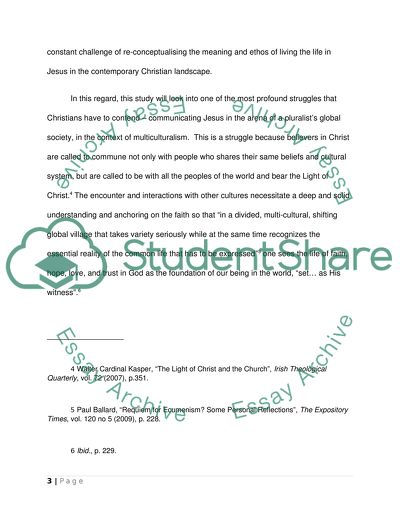Cite this document
(“Communicating Jesus in the Global Society Research Paper”, n.d.)
Communicating Jesus in the Global Society Research Paper. Retrieved from https://studentshare.org/religion-and-theology/1403755-communicating-christ-cross-culturally
Communicating Jesus in the Global Society Research Paper. Retrieved from https://studentshare.org/religion-and-theology/1403755-communicating-christ-cross-culturally
(Communicating Jesus in the Global Society Research Paper)
Communicating Jesus in the Global Society Research Paper. https://studentshare.org/religion-and-theology/1403755-communicating-christ-cross-culturally.
Communicating Jesus in the Global Society Research Paper. https://studentshare.org/religion-and-theology/1403755-communicating-christ-cross-culturally.
“Communicating Jesus in the Global Society Research Paper”, n.d. https://studentshare.org/religion-and-theology/1403755-communicating-christ-cross-culturally.


